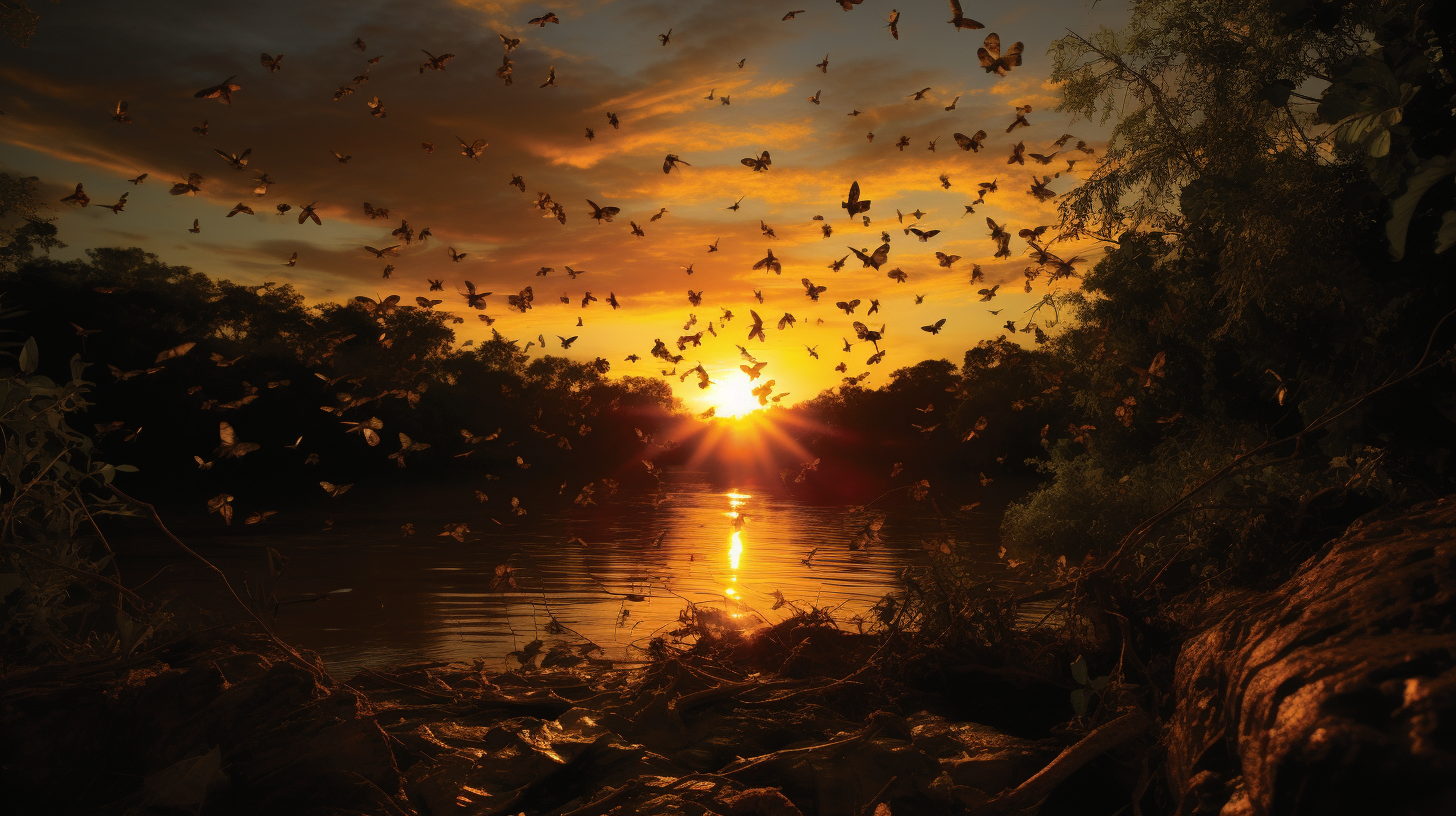In the perpetual gloom of our world, a certain silence grows louder—a silence marked by the absence of what was once the symphony of the night.
The air, thick with pollution and the acrid scent of chemical despair, no longer carries the chirps of crickets or the buzzing of beetles. It’s a silence that bears witness to the unraveling tapestry of life, a thread quietly snapping with every vanished wingbeat.
To understand this quietude, one must grasp the severity of the insect apocalypse we’ve casually escorted onto the stage of reality—through the heedless acts of devastation on their habitats to the poisonous embrace of pesticides. Our skies, once painted with the vital beats of pollination and decay, are now barren, leaving behind only the echoes of their songs.
Dr. Aleksei Dryden, once a voice in a chorus of denial, now solemnly charts the decline of these tiny beings with a meticulous grief. ‘The insects didn’t just keep our ecosystems running, they were the heartbeat,’ pronounces Dryden. ‘With their demise, we see the cascading effects of silence—not just in sound, but in life’s vibrance itself.’
Imagine if you will, a world where the pollinators are no more. Our meals, our medicines, the flowers that adorn our lifeless cities—all contingent on their tireless work—now teeter on the brink of memory. This is not imagination; this is prediction, a glimpse into the curtain call of nature’s unseen performers.
As we trace the melancholic descent of insect populations, we realize that it mirrors our own. In a feedback loop of ecological neglect, we’ve set the stage for a play with no second act, where the quietude becomes a chilling soliloquy foretelling our own demise.
Yet, amidst this solemn narrative, the paradox of action and inaction wrestles beneath the surface of societal consciousness. In the desperate scramble for solutions, technology presents itself as a savior—mechanical pollinators, genetically altered survivors. A misguided attempt to patch a quilt that is too extensively torn. ‘We try to engineer our way out,’ Dryden muses, ‘but it’s like repairing a watch with a hammer.’
From the rarefaction of the firefly’s glow to the hush of butterflies, the void stretches gaping before us. Our world, preoccupied with the noise of progress, now faces an ominous stillness, a reminder of what used to be.
As the sun sets on this day, when families gather in their homes, shielded from the world’s harsh truths, the sunset of insect songs rings alarmingly clear. It is a requiem for the death of abundance, played to an audience that barely comprehends the profundity of its loss.
Today’s sunset, much like the thousands before, dips below a horizon diminished by absence. But this absence is just as much a tableau of our neglect as it is mournful tribute to the minuscule maestros of Earth’s chorus. And tonight, as the darkness swallows us whole, their silence will resound—ushering in the night with its deafening hush.
